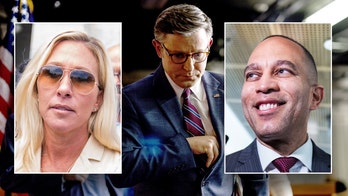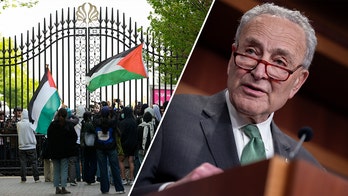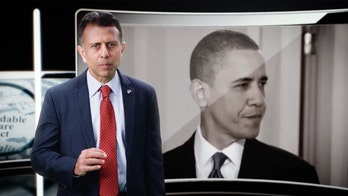The State Department on Tuesday gave the House Select Committee on Benghazi 1,300 pages of new emails from Ambassador Chris Stevens, just two days before the panel is scheduled to hear testimony from former Sec. of State Hillary Clinton.
South Carolina U.S. Rep. Trey Gowdy , who chairs the Select Committee, first mentioned new Stevens emails during an interview on CBS’ “Face the Nation” on Sunday. He noted that the previous seven congressional committees that have investigated the lead-up and response to the Sept. 11, 2012 Benghazi attack failed to obtain all of the diplomat’s records.
Stevens and three other Americans were killed in the attack. Clinton will testify Thursday about the lack of security for Stevens before the onslaught as well as the State Department’s initial response to it.
“How did they miss Ambassador Stevens’ emails? None of the seven previous committees bothered to access the emails of our ambassador,” Gowdy said Sunday.
“If we want a window into Libya and what was happening in the weeks and months before these four were killed, why would you not look at the ambassador’s emails?” he continued. (RELATED: Trey Gowdy: How Did 7 Congressional Committees Miss Amb. Chris Stevens’ Emails?)
Asked why the State Department is only just now handing over this new batch of Stevens emails, agency spokesman Alec Gerlach said that the hand-over came in response to a “recently prioritized request from the Committee.”
He said that the State Department has produced approximately 10,000 pages of emails and documents in recent weeks that were sent and received by Ambassador Chris Stevens between 2011 and Sept. 2012.
He also said that the committee “has long had possession of emails and cables from Ambassador Stevens pertaining to Benghazi and Libya.”
He also stated that the committee obtained the new records because its requests were broader than requests made during previous congressional investigations.
Gerlach insisted that the new emails “do not change the essential facts that have been known since the independent Accountability Review Board report came out in December 2012.”
“They do not change our understanding of what happened before, during or after the attacks,” he added.
Gowdy gave a different characterization of the emails during his interview on Sunday, however.
He said that Stevens’ communiques show that he began requesting additional security in June 2012, when he was appointed ambassador. Instead of receiving help, though, Gowdy said that State Department officials asked Stevens to help craft “public messaging advice” on the precarious situation in the north African country.
Gowdy said that other emails show that one of Clinton’s top aides, Jake Sullivan, asked Stevens to vet an intelligence report written by Clinton’s longtime friend, Sidney Blumenthal.
The Benghazi Committee did not immediately respond to a request for comment on Tuesday’s email production.




